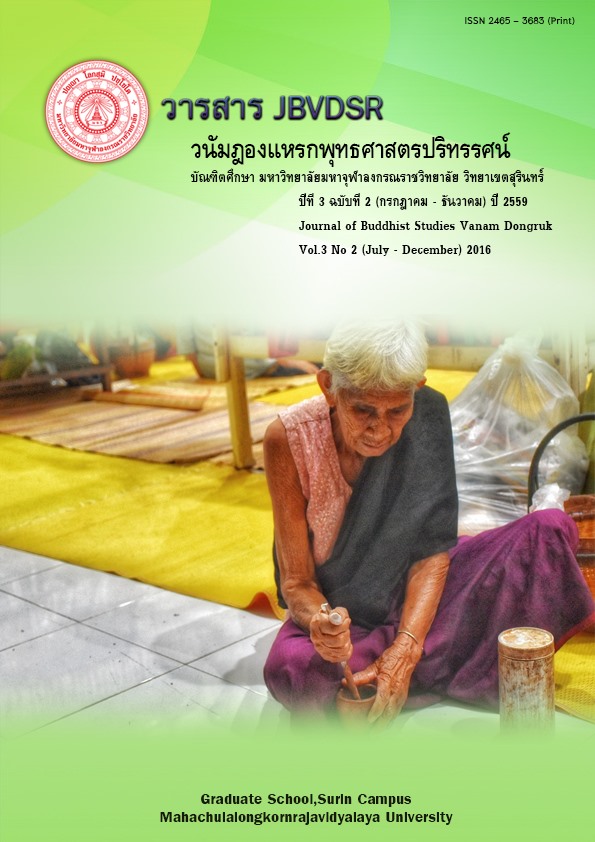BUDDHISM AND SOCIAL CONCERN
บทคัดย่อ
The Buddha was born at Lumbini as Prince Siddhartha over 2600 years ago in the Sakya clan. He had all the worldly luxuries for enjoyment and pleasure but after seeing a sick man, an old man, a dead man and finally an ascetic, he realized that this world is full of suffering and the worldly pleasures are useless. He renounced his household life, became a homeless recluse, underwent severe penance for six long years, and by attaining the Supreme Knowledge became the Buddha. He got the lasting solution of the perennial problem of ‘suffering’ (Dukkha) at Bodhgaya; but he did not retire to the forest life. He was deeply involved in thinking for the suffering human beings and that was the reason, he went to Sarnath to share his knowledge with his erstwhile companions who later came to be known as Pañcavaggiya Bhikkhus. When the number of his disciples rose up to sixty and all became ‘Arahantas’, the Master dispatched them to different directions with the sole aim of doing good to all the beings
Downloads
เอกสารอ้างอิง
Damien Keown, Contemporary Buddhist Ethics, New York: Routledge Curzon, 2000.
………………………., The Nature of Buddhist Ethics, London: Palgrave, 2001.
Dr. S.N. Sharma, Buddhist Social and Moral Education, Delhi: Parimal Publications, 2011.
Bhikkhu P.A. Payutto, A CONSTITUTION FOR LIVING: Buddhist Principles for a Fruitful and Harmonious
Life, Thailand: Sahathammika Co. Ltd., 2006.






